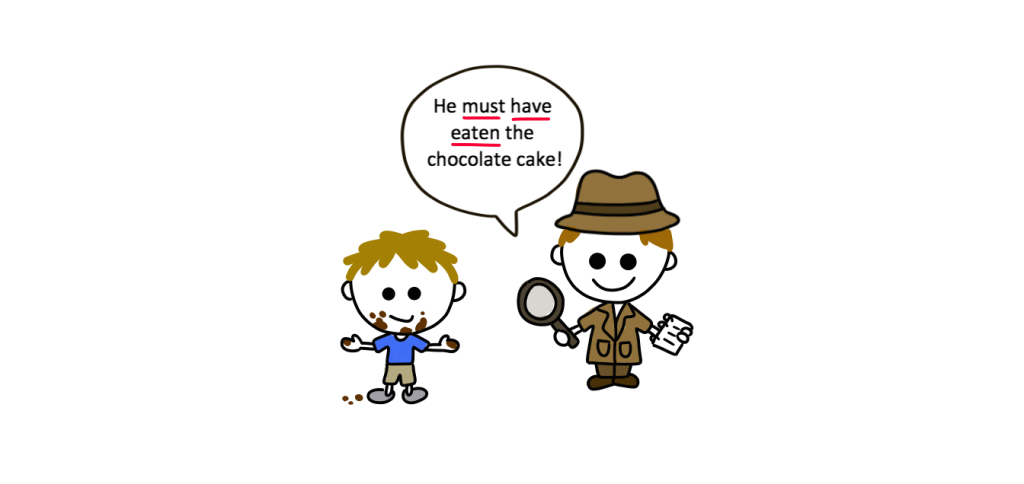English language learners are often confused by the many different uses of modal verbs. Each modal verb can be used for several different reasons, and sometimes we can use more than one modal verb for the same reason.
One important rule to remember about modal verbs in the present is that they are always followed by a base verb.
Modal verbs can be used to make deductions. A deduction is a guess or a prediction made using the information you know.
We use must when we have evidence and would like to make a strong prediction.
For example, let’s pretend that my friend walks to school every day. In this situation, because I have some evidence, I can make a strong prediction and say, “She must live close to the school.”
Or here’s another example. Let’s pretend that my friend, Mary, has been telling me about Tom, a new man that she is dating. She tells me that she is going to bring him to my party on Saturday night. When Mary arrives at my party with a man on her arm, I can say, “Oh, you must be Tom.”
In this situation the opposite of must is can’t. We use can’t when we don’t think that something is possible. For example, if Peter slept for 12 hours last night, I can say, “Peter can’t be tired. He slept so much!” This means that I don’t think it is possible for Peter to be tired because I have some evidence (I know that he slept for 12 hours!).
The modal verbs might, may and could can be used to make a prediction about something that we are a little bit more unsure about. For example, imagine you lost your glasses. You’re not sure where they are, so you think of some possibilities. “They might be in the car”; “They could be in my coat pocket”; or “They may be at work.” All of these are possibilities, but I don’t have a lot of evidence to support them.
All of the above examples use modal verbs to make present deductions. We can also use modal verbs to make past deductions, but the form is slightly different. To speculate about the past, we use modal verb + have + past participle.
The use stays the same (must for strong positive predictions, can’t for strong negative predictions, may/might/could for predictions without much evidence), but now we can make a past prediction.
Let’s look at an example. Imagine that you are at work and Lisa, one of your colleagues, hasn’t arrived yet. Your colleagues make some past predictions—“She might have missed the bus this morning”; “She could have overslept.” But you spoke to Lisa this morning, and you know that she was feeling tired and needed to get a coffee. You can say, “She must have stopped to get a cup of coffee,” because you have a little more evidence than everyone else.
Another example can be seen in the image below:
Modal verbs for deduction can also be used in the continuous form, but this use is less common. We can use modal verb + be + verb+ing to make a present prediction, and modal verb + have + been + verb+ing to make a past prediction.
For example, let’s pretend that I see my friend and she is sweating. I can make a past prediction that she might have been exercising at the local gym before I saw her. Or a present prediction that she must be rushing to somewhere important at the moment!
Using modal verbs for deductions is very useful.
 This post was written by Teacher Diane. Diane is an English teacher from New York with over four years of experience teaching English to students from all over the world. She is the founder of http://www.teacherdiane.com/ , a website that provides personalized English lessons on Skype. You can watch her video tutorials at http://www.youtube.com/user/TeacherDianeESL.
This post was written by Teacher Diane. Diane is an English teacher from New York with over four years of experience teaching English to students from all over the world. She is the founder of http://www.teacherdiane.com/ , a website that provides personalized English lessons on Skype. You can watch her video tutorials at http://www.youtube.com/user/TeacherDianeESL.
